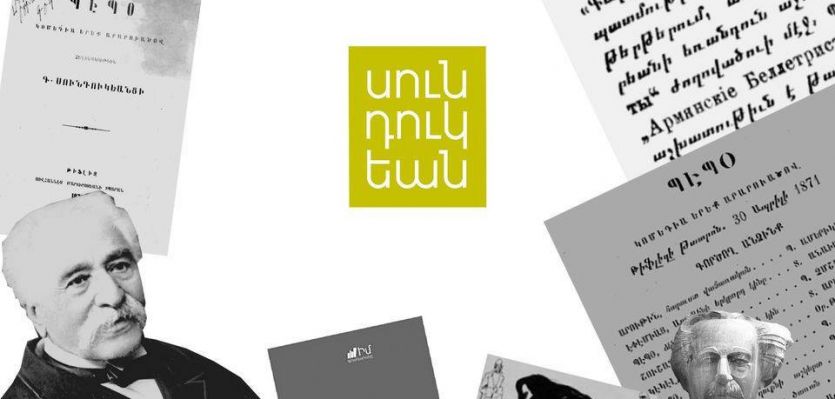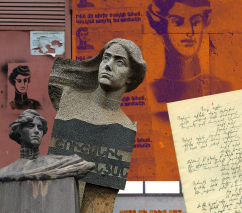On this day-Mar. 29, 1912: the founder of modern Armenian drama Gabriel Sundukian died
March 29, 2020
Writer and playwright, Gabriel Sundukian (1825-1912), is often regarded as the founder of modern Armenian drama, but his legacy extends far beyond this label.
As this pandemic unfurls like a nightmare, we rewind to an earlier time, to recall a different cruel production. 1912 was an ill-fated year, not only because of the sinking of the Titanic, but also because on March 29, a giant of the Armenian theater took his last breath.

Born into opulence during the height of Tiflis’ cultural renaissance, the young Sundukian learned half a dozen languages, and worked as a translator for the Russian viceroy before studying under another literary titan, Khachatur Abovian, at the prestigious Nersisian School. Soon thereafter, he published his first literary work, a comedy titled, “Sneezing at Night is Good Luck.” It’s the kind of title that, perhaps, today seems almost ironic (though sneezing is not a symptom of COVID-19, we’re told!).
It didn’t take long for Sundukian to shake things up in the theater scene. Play after play, he addressed society’s ills and foibles through pointed humor. Though wealthy himself, his 1871 work, “Pepo,” empathized with the poor, critiquing the class exploitation and rampant inequality in the Tiflis of his time. In 1935, the play was adapted into a film—the first-ever talkie in Armenian cinema—and is considered among the best films in Armenian history. The character of “Pepo” even has his own monument in Yerevan!
Today, Sundukian’s name may be lost in the city of his birth, but his presence is still very much felt in Yerevan—from a bust of his head in English Park to a street and theater academy named after him. The groundbreaking “Pepo” film opens with a villager singing; as we imagine the awe of the audience first hearing vocals in an Armenian film through song, we similarly find comfort during these trying times in the stories of our great author: the Sun-duk-ian.
Join our community and receive regular updates!
Join now!




Attention!